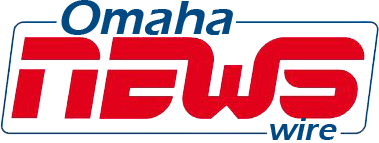If you own a business, it's important to understand the different types of commercial auto insurance policies available. While many business owners are familiar with standard commercial vehicle insurance policies, non-owned auto insurance is often overlooked.
As a business owner, you may have employees who use their personal vehicles for work-related activities such as making deliveries or running errands. While your employees' personal auto insurance policies may provide some coverage, they may not be enough to protect your business from liability in the event of an accident. This is where non-owned auto insurance comes in.
Commercial auto insurance is a type of insurance policy that provides coverage for vehicles used for business purposes. This can include company-owned vehicles, as well as vehicles owned by employees that are used for work-related activities. Commercial auto insurance policies typically provide coverage for liability, collision, and comprehensive coverage.
Understanding Non-Owned Auto Insurance
Non-owned auto insurance is a type of commercial auto insurance policy that provides coverage for vehicles that are not owned by the business but are used for work-related activities. This can include rental cars, leased vehicles, or vehicles owned by employees. Non-owned auto insurance policies provide coverage for liability, collision, and comprehensive coverage.
When Is Non-Owned Auto Insurance Necessary?
Non-owned auto insurance is necessary if your employees use their personal vehicles for work-related activities. If an employee is involved in an accident while driving their personal vehicle for work-related activities, your business may be held liable for damages. Non-owned auto insurance provides coverage for these types of situations and can help protect your business from financial loss.
What Does Non-Owned Auto Insurance Cover?
Non-owned auto commercial insurance provides coverage for liability, collision, and comprehensive coverage. Liability coverage provides protection in the event of an accident where your business is found to be at fault. This can include damages to the other party's vehicle, medical expenses, and legal fees.
Collision coverage provides coverage for damages to the vehicle in the event of an accident. This can include repairs or replacement of the vehicle.
Comprehensive coverage provides coverage for damages that are not related to an accident, such as theft or vandalism.
How Much Does Non-Owned Auto Insurance Cost?
The cost of non-owned auto insurance can vary depending on the size of your business and the amount of coverage you need. On average, non-owned auto insurance policies cost between $200 and $600 per year. However, this can vary depending on the number of employees you have and the types of vehicles they use.
How to Purchase Non-Owned Auto Insurance
Non-owned auto insurance can be purchased as a standalone policy or as an endorsement to your existing commercial auto insurance policy. To purchase non-owned auto insurance, you will need to provide information about your business, including the number of employees and the types of vehicles they use.
Tips for Finding the Best Non-Owned Auto Insurance Policy
When shopping for non-owned commercial vehicle insurance, it's important to compare policies from multiple insurance providers. Look for policies that provide the coverage you need at a price that fits your budget. Additionally, consider factors such as the reputation and financial stability of the insurance company. Here are some tips to help you find the best non-owned auto insurance policy:
Research Multiple Insurance Providers: Obtain quotes from different insurance companies that offer non-owned auto insurance. This will allow you to compare coverage options, premiums, and policy terms.
Assess Coverage Needs: Evaluate the specific needs of your business. Consider factors such as the number of employees who use non-owned vehicles, the frequency of vehicle usage, and the types of activities performed using those vehicles. This will help you determine the appropriate coverage limits and types of coverage required.
Read Policy Details Carefully: Thoroughly review the policy documents and understand the coverage provided, exclusions, deductibles, and any additional endorsements. Ensure that the policy meets your business's requirements and provides sufficient protection.
Consider Liability Limits: Evaluate the liability limits offered by the insurance policies. Adequate liability coverage is crucial to protect your business from potential lawsuits and financial losses in the event of an accident.
Seek Professional Advice: If you are unsure about the insurance options or need assistance in selecting the right policy, consult with an experienced insurance agent or broker. They can provide guidance based on your specific business needs.
Remember, non-owned commercial insurance for vehicle is a valuable investment for businesses that rely on employees using non-owned vehicles for work-related activities. It can help safeguard your business from liability risks and provide financial protection in the event of accidents or damages.
Risks of Not Having Non-Owned Auto Insurance
Choosing not to have non-owned auto insurance can expose your business to significant risks. Without proper coverage, your business may be held financially responsible for damages, medical expenses, and legal costs resulting from accidents involving non-owned vehicles used for work-related purposes. Here are some risks of not having non-owned auto insurance:
Increased Liability: If an employee driving a non-owned vehicle is involved in an accident and found to be at fault, your business may be held liable for damages to the other party's vehicle, medical expenses, and any legal fees. This can result in substantial financial burdens that may impact your business's operations and reputation.
Limited Protection from Lawsuits: Without non-owned auto insurance, your business may lack the necessary protection against potential lawsuits arising from accidents involving non-owned vehicles. Legal claims can be expensive to defend and settle, potentially draining your business's resources and affecting its financial stability.
Lack of Property Damage Coverage: Non-owned auto insurance not only covers liability but also provides coverage for damages to the non-owned vehicle involved in an accident. Without this coverage, your business may be responsible for repairs or replacement costs, adding financial strain to your operations.
Employee Disputes: In the absence of non-owned auto insurance, disputes may arise between your business and employees if their personal auto insurance policies fail to provide sufficient coverage for work-related accidents. This can lead to strained relationships, decreased employee morale, and potential legal issues.
By obtaining non-owned commercial car insurance, you can mitigate these risks and protect your business from the financial consequences of accidents involving non-owned vehicles.
As a business owner, you understand the importance of protecting your assets and investments. While commercial auto insurance is commonly known and utilized, non-owned auto insurance is an often-overlooked aspect of comprehensive coverage. In this article, we will delve deeper into non-owned auto insurance, its necessity, and the benefits it offers to businesses.
Non-owned auto insurance is specifically designed to provide coverage for vehicles not owned by your business but used for work-related purposes. It extends coverage to situations where employees use their personal vehicles or rented/leased vehicles for business activities such as deliveries, client visits, or running errands. While the employees' personal auto insurance may offer some coverage, it may fall short in adequately protecting your business from potential liabilities.
One of the primary questions business owners ask is when non-owned auto insurance becomes necessary. The answer lies in the potential risks your business faces when employees use non-owned vehicles for work-related tasks. If an accident occurs while an employee is driving a non-owned vehicle, your business could be held liable for damages, medical expenses, and legal fees. Without non-owned auto insurance, your business may face significant financial burdens that could affect its operations and reputation.
Non-owned auto insurance provides a wide range of coverage, including liability, collision, and comprehensive coverage. Liability coverage protects your business in the event of an accident where your employee is found to be at fault. It covers damages to the other party's vehicle, medical expenses, and legal costs. Collision coverage, on the other hand, provides protection for damages to the non-owned vehicle involved in an accident. Comprehensive coverage offers coverage for non-accident-related incidents, such as theft or vandalism.






 English (US) ·
English (US) ·